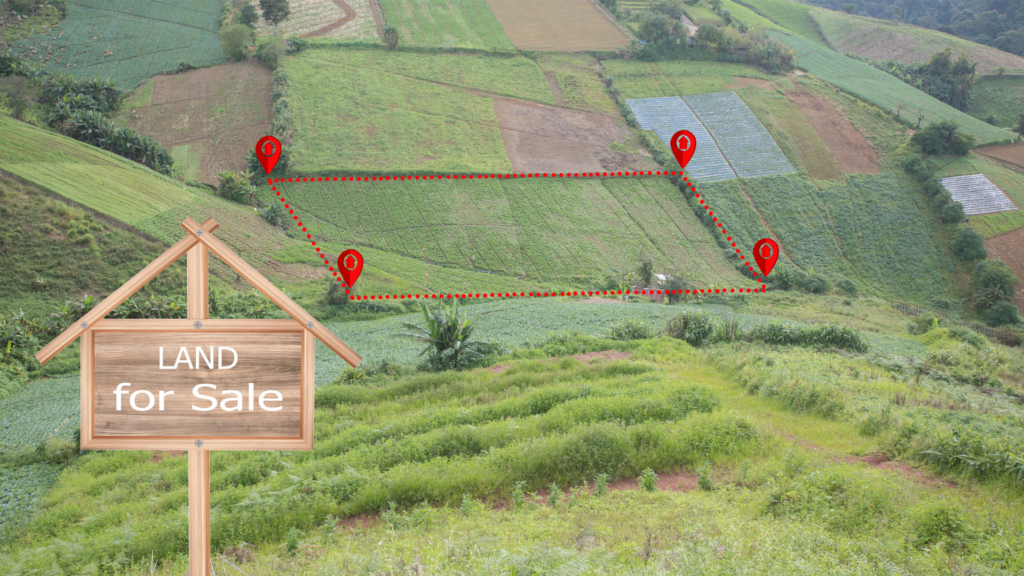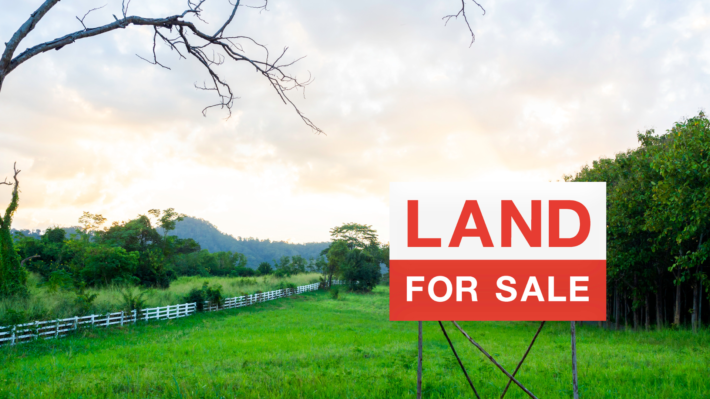Steps in Buying Land For Beginners: A Complete Blueprint

Buying land for beginners is always thrilling process. Whether you want to have the perfect home for you and your family, want to buy some property for business or just want to buy land to secure your future, owning at least a piece of land helps you to take… However, in their first steps, people can meet certain difficulties in its implementation. You will learn everything you need to know to help you in purchasing land for the first time from this guide.
Why Buy Land for Beginners: Understanding the Benefits
However, to prevent a dive into the many issues arising out of the process of buying land for beginners, let’s look at the reasons why are considered good to buy land. _Land is a fixed asset and unlike most properties it does not wear out or depreciate in the process of holding it.
In addition, a landowner can decide on how to bring the property into use or develop it which makes it a suitable long term investment.
Having your own piece of land is also another way through which people can use it as a starting point towards wealth accumulation. Regardless of whether a person wants to construct a house there or develop the land and sell portions of it commercially, there is the potential for the value of the land to appreciate greatly.
In rural areas, it may allow for land for agriculture, leisure, or other uses such as the creation of an environmentally sensitive project.

Types of Land Available for Purchase
When buying land, it’s important to know the different types available:
- Raw Land: This simply means a vacant piece of as yet untested land that has no amenities or development.
- Developed Land: Sanitary, a piece of land with access to water, electricity or a piece of land with a road network.
- Agricultural Land: Basically established for farming or rearing of animals.
- Residential Land: It lies within a residential area for real estate all over the country.
- Commercial Land: Designed for commercial or industrial application.
They both perform different functions and subject to different laws thus choosing one depends on what you have in mind for the piece of land.
Important Factors to Consider Before Buying Land
When looking to buy land, several factors should be carefully evaluated:
- Location: Is it a developing district, or is it a dormant district? The future appreciation can however be guessed by researching local development trends.
- Accessibility: Is the land easy to reach? Absence of proper roads might cause a variation of the value of the land substantially.
- Utilities: Find out if facilities such as water, power, and septic system will need to be connected or not.
- Soil Quality and Topography: Some of the land uses include agriculture or construction, the use of the land is determined by the quality of the soil and the gradient of the land.

Financing Options for Buying Land
Financing land is often more complex than securing a mortgage for a home. Lenders may require larger down payments or shorter loan terms because land purchases carry more risk. However, several financing options are available:
- Land Loans: These are specialized loans for purchasing land, usually requiring 20-50% down.
- Construction Loans: These loans cover the cost of building a home or structure after you purchase the land.
- Seller Financing: Sometimes the seller may offer financing, which can simplify the process for the buyer.
- Personal Savings or Investments: Some buyers may choose to pay in full using their savings or other investments.
Choosing the Right Location: What to Look For
Choosing the right location is a key factor in ensuring your land purchase serves your needs and appreciates over time. Here’s what to look for:
- Growth Potential: Research whether the area is expected to grow or decline in the coming years.
- Proximity to Amenities: Schools, hospitals, and grocery stores add convenience and increase land value.
- Crime Rates: Ensure you buy in a safe and secure neighborhood.
- Environmental Factors: Consider flood zones, natural disasters, and the quality of the surrounding ecosystem.
Understanding Zoning and Land Use Regulations
Before buying land, you must understand the zoning laws and land-use regulations in the area. Zoning determines what type of structure can be built on the land, and any restrictions imposed. For example, you may find land zoned strictly for agricultural use, which wouldn’t allow for residential construction.
- Residential Zoning: Allows homes, but some may have restrictions on the size or type of dwelling.
- Agricultural Zoning: Used for farming and may not permit non-farm structures.
- Commercial Zoning: Suitable for businesses but may restrict certain operations like heavy industry.
Always consult with local zoning authorities or a real estate attorney to ensure your intended use aligns with the regulations.
How to Research Property History and Title
A critical step in buying land is verifying its ownership and history. Conducting a title search will reveal any liens, easements, or other encumbrances on the property that could affect your purchase.
You can work with a title company or real estate lawyer to investigate the following:
- Previous Ownership: Ensures that the person selling the land has the legal right to do so.
- Encroachments or Easements: These are claims others might have on parts of your land.
- Outstanding Liens: Unpaid debts attached to the land, which you might inherit upon purchase.
Hiring the Right Professionals: Realtors, Lawyers, and Surveyors
Purchasing land is a complex process that often requires the expertise of various professionals:
- Real Estate Agents: Specialize in land purchases and can provide guidance on market values and offer negotiations.
- Real Estate Attorneys: Help navigate legal challenges, including contract terms and zoning regulations.
- Land Surveyors: Ensure that the property boundaries are accurately measured and documented.
Investing in the right professionals can save you from costly mistakes.
Conducting a Land Survey: Why It’s Crucial
Land surveys are essential for confirming the exact property boundaries, which can prevent future disputes with neighbors or the government. A survey will also highlight any potential issues, such as flood risks or encroachments from other properties.
Make sure your surveyor is licensed and familiar with the local terrain and regulations.
The Process of Making an Offer on Land
Making an offer on land involves several steps, much like buying a home. Your real estate agent can assist with drafting a formal offer that includes:
- Price: Based on comparable sales and current market trends.
- Contingencies: Conditions that must be met, such as a successful land survey or financing approval.
- Earnest Money: A deposit that shows the seller you are serious about the purchase.
Once both parties agree, a contract is signed, and due diligence begins.
What Happens After You Buy Land: Next Steps
After purchasing the land, your next steps will depend on your plans for development. You might need to apply for building permits, set up utilities, or start working with architects and contractors. Additionally, you should have an insurance plan in place to cover your land from natural disasters or legal claims.
Costs Involved in Buying and Owning Land
Owning land comes with various costs beyond the initial purchase:
- Property Taxes: These vary by location and land use.
- Insurance: Coverage for fire, flood, and liability.
- Utility Installation: Connecting water, electricity, and sewage can be expensive in undeveloped areas.
- Land Maintenance: Depending on the land, you might need to clear trees, manage weeds, or maintain access roads.
Environmental Considerations When Buying Land
Environmental regulations can significantly impact how you use your land. In some cases, you may need to conduct environmental impact assessments, especially if you plan to build on sensitive areas, like wetlands or wildlife habitats. Be aware of protected zones and pollution restrictions.
Common Mistakes Beginners Make When Buying Land
Beginners often fall into these common traps when purchasing land:
- Ignoring Zoning Laws: Buying land without checking zoning restrictions can lead to disappointment if you can’t use it as intended.
- Skipping the Land Survey: Failing to conduct a land survey can result in boundary disputes later on.
- Overlooking Utilities: Not having access to utilities like water and electricity can turn a good deal into an expensive one.
Frequently Asked Questions About Buying Land for Beginners
1. Can I get a mortgage for buying land?
Yes, but it’s typically more difficult than a traditional mortgage for a home. You may need a land loan or construction loan.
2. How do I find out if land is buildable?
You need to check with the local zoning authority and confirm that the land meets the legal requirements for building.
3. Is it better to buy raw land or developed land?
It depends on your goals. Raw land is cheaper but requires more investment in infrastructure, while developed land is ready for immediate use.
4. How much should I budget for land maintenance?
The cost varies depending on the size and condition of the land. Expect to pay for property taxes, insurance, and possible infrastructure work.
5. How long does the land-buying process take?
The process can take anywhere from 30 days to a few months, depending on financing, legal checks, and negotiations.
6. Do I need a lawyer to buy land?
Consulting a real estate lawyer is advisable when signing the contract or in case if something is wrong with the title.
Final Thoughts
Buying land for beginners is always encouraging yet considered a tedious exercise by many, including the first-time buyers. The mistakes can be avoided if sufficient background work is done and sufficient professionals are consulted and the following are the tips to getting a good property.
Keep Learning
>> High-Value Owner Financed Land For Sale in Your Area
>> Buying Land in Florida: Essential Tips to Make a Smart Investment
>> Your Step-by-Step Guide to Rent To Own Land



